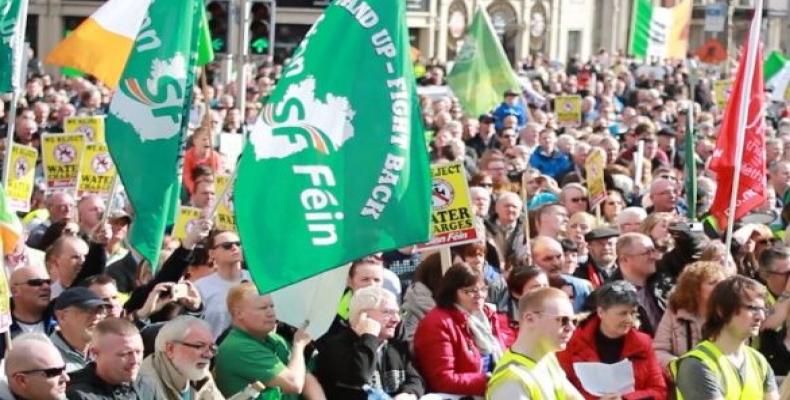Dublin, September 11 (RHC)-- Ireland's largest pro-independence party Sinn Fein has called for an all-Ireland referendum on reunification and independence as a solution to a possible Irish border following a no deal Brexit. They called on politicians across Ireland to begin planning for reunification and an end to British rule in Northern Ireland.
Sinn Fein MEP Matt Carthy spoke on Monday as U.K. Prime Minister Boris Johnson met with Irish counterpart Leo Varadkar to discuss the ‘backstop’ and other border arrangements after Brexit.
“For too long our government and some political parties, particularly Fianna Fail, have dismissed calls to engage in a process of planning for reunification. The real prospect now of a no-deal Brexit will expose that stance as nothing short of reckless irresponsibility,” said Carthy. And he added: “A united Ireland is a legitimate, eminently sensible political objective. It is fully in line with the Good Friday Agreement which explicitly provides for a referendum on the issue.”
There are concerns about possible conflict returning to Ireland in the event of a no-deal Brexit, this is due to the fact that a hard border separating the Republic of Ireland, and the British-occupied North would have to be erected if the U.K. leaves the EU without an agreement that covers border arrangements.
A border dividing the island would be a violation of the "Good Friday" peace agreements that were signed in 1998; this would later end decades of war. For Irish nationalists, a border is a symbol of British occupation and was a focal point of the armed conflict during the ‘troubles’.
To avoid such a conflict, the EU and the Irish government proposed the ‘backstop’, which would mean that Northern Ireland stays within EU trade rules, even as Britain leaves. It would mean that there would continue to be free movement of people and goods across the island. However, right-wing politicians in London, along with those in Northern Ireland loyal to British rule, both oppose it because it would mean that the ‘six counties’ would have more in common with the Republic of Ireland than they do with London.
As a no-deal (and therefore a border) Brexit becomes more likely under Johnson's premiership, tensions have grown in Ireland. According to U.K. government figures, 87 people have been victims of paramilitary attacks in Northern Ireland between July 2018 and June 2019. Within that time frame, two victims were shot and 65 assaulted. In June alone, there have been 12 paramilitary assaults, the highest amount since April 2009. Such violence is likely to explode if a hard border returns.
In this context, Carthy and others believe that an end to British rule in the North, and a reunification of both Irelands is the only guarantee against a diving border. “If the stated direction of the British government remains unchanged it [Irish reunification] may be the only way that we can minimise the political and economic devastation which Brexit threatens to cause on our island.”


